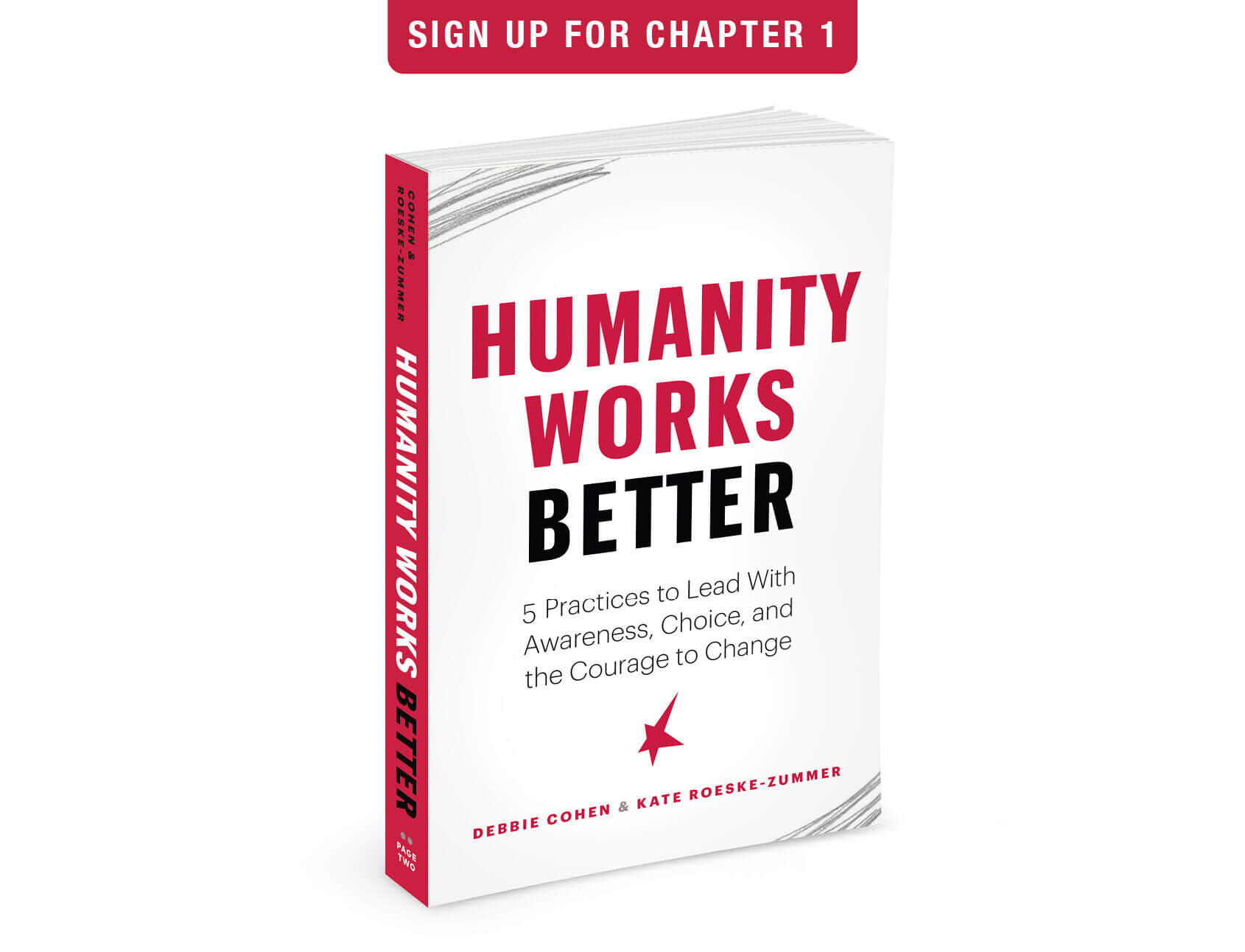How to hold on to your humanity during the holidays.
There’s so much polarization today that seems to be dominating people’s mindsets. It is binary: yes or no, agree or disagree, right or wrong, there is no in-between in this way of thinking. For example, the whole conversation about return to work, hybrid and there is one that is “right” and one that is “wrong.” Somehow our politics have become so uncivil – if we disagree with one another then you don’t like me, and I am “wrong.” Polarization is not the answer. To shift this mindset, we need to stand in the place that holds both: that I can care about you AND disagree with you. That I value you as a human and part of that value is in understanding that we are not going to agree with one another all the time on everything.
So, pause, and take inventory: how does this show up in your life? In your work? How is it seeping into your life? What is true for you in this? Inside our own families we have very different views on politics and money and religion and child rearing just to start the list. We can all relate to this. The struggle is real. And, if you want to be a part of a different narrative – one that values that humans are by design different, then the mindset shift is how to be with that difference. This begins with you. So where to begin?
Here are three tips, practices, and skills from our work, that will help you enjoy the holidays, no matter who you are with.
Be open to another’s perspective:
The first place to start is to acknowledge the difference, don’t ignore the different points of view. Be open to a perspective shift as you listen, truly listen, to the other’s opinion. Your initial state might be to resist and react negatively to the other’s ideas. You may not like what they are saying, but listening deeply will allow you to search for the humanity in that person. Find at least 2% truth in what they are saying: it might be their passion or that there is one thing that you do agree on. Humanity is a kaleidoscope – we all see different angles and patterns. It takes attention and awareness to shift attitudes and beliefs. Create the openness for a perspective shift in yourself by creating awareness of your own rigid positions and examining them. As one of our favorites Byron Katie espouses in her work, ask yourself “what if the opposite of my story is true?” Try that on and see what shifts. The goal isn’t to suddenly move over to their viewpoint, but to lessen the feeling of fear that their viewpoint creates in you. That is the shift.
Get curious:
The best way to step towards someone who you disagree with at work or at a holiday meal is to get curious with them. Here are three questions you can ask yourself to open your curiosity:
- What is it about that person that is interesting?
- What am I learning from what they are saying?
- What is it about that person’s lifestyle or background that helps me better understand why they think the way they do?
Listen without judgment. The antidote to judgment is curiosity. When you allow yourself to be curious, you may hear or understand things in a different way.
Acknowledge what has shifted in the relationship:
If you have been able to shift your perspective, look for 2% truth and stay curious about them, notice what has shifted. How do you feel internally? How do you feel about them? What is different? What is important? We are more than our opinions and beliefs and those things can change. But the only way they can change is if we have different experiences and different conversations. Our mindsets are embedded, and it takes conscious effort to shift them. This is the wonderful complexity of humanity.
We are grateful to all of you humans who have supported our work this year and wish you all a Happy Thanksgiving.
Humanity works because of YOU!
Kate and Debbie

